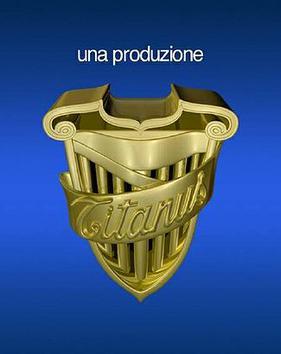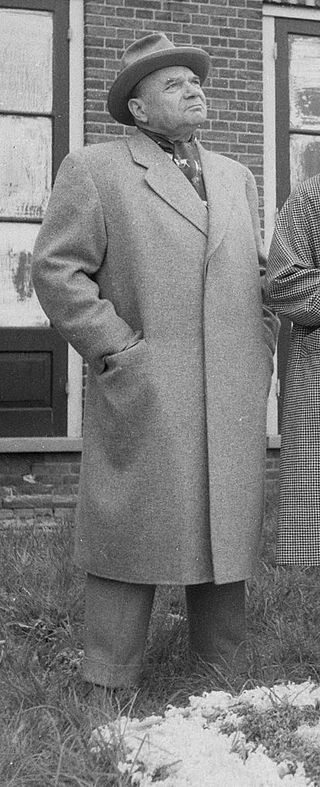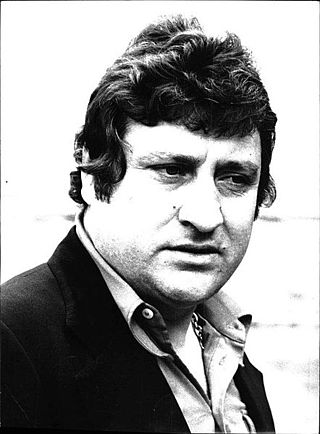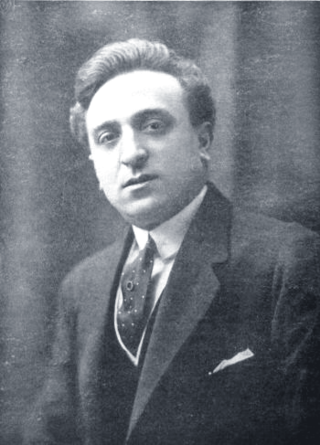
Roberto Remigio Benigni is an Italian actor, comedian, screenwriter and director. He gained international recognition for writing, directing and starring in the Holocaust comedy-drama film Life Is Beautiful (1997), for which he received the Academy Awards for Best Actor and Best International Feature Film. Benigni was the first actor to win the Best Actor Academy Award for a non–English language performance.

Sword-and-sandal, also known as peplum, is a subgenre of largely Italian-made historical, mythological, or biblical epics mostly set in the Greco-Roman antiquity or the Middle Ages. These films attempted to emulate the big-budget Hollywood historical epics of the time, such as Samson and Delilah (1949), Quo Vadis (1951), The Robe (1953), The Ten Commandments (1956), Ben-Hur (1959), Spartacus (1960), and Cleopatra (1963). These films dominated the Italian film industry from 1958 to 1965, eventually being replaced in 1965 by spaghetti Western and Eurospy films.

Agostino "Dino" De Laurentiis was an Italian film producer and businessman who held both Italian and American citizenship. Following a brief acting career in the late 1930s and early 1940s, he moved into film production; alongside Carlo Ponti, he brought Italian cinema to the international scene in the post-World War II period. He produced or co-produced over 500 films, with 38 of his Hollywood films receiving Academy Award nominations. He was also the creator and operator of DDL Foodshow, a chain of Italian specialty foods stores.

Italian futurist cinema was the oldest movement of European avant-garde cinema. Italian futurism, an artistic and social movement, impacted the Italian film industry from 1916 to 1919. It influenced Russian Futurist cinema and German Expressionist cinema. Its cultural importance was considerable and influenced all subsequent avant-gardes, as well as some authors of narrative cinema; its echo expands to the dreamlike visions of some films by Alfred Hitchcock.

The Campo Verano is a cemetery in Rome, Italy, founded in the early 19th century. The monumental cemetery covers a surface area of 83 hectares which is currently divided into several sections: the main Catholic cemetery, the Jewish cemetery established in 1895, a Protestant section with its own entrance and a military section with monument to the victims of World War I.

Reginald C. Barker was a pioneer film director.

Alessandro Blasetti was an Italian film director and screenwriter who influenced Italian neorealism with the film Quattro passi fra le nuvole. Blasetti was one of the leading figures in Italian cinema during the Fascist era. He is sometimes known as the "father of Italian cinema" because of his role in reviving the struggling industry in the late 1920s.

Tony Gaudio, A.S.C. was an Italian-American cinematographer and sometimes is cited as the first to have created a montage sequence for a film.

Titanus is an Italian film production company, founded in 1904 by Gustavo Lombardo (1885–1951). The company's headquarters are located at 28 Via Sommacampagna, Rome and its studios on the Via Tiburtina, 13 km from the centre of Rome.
A list of some notable films produced in the Cinema of Italy ordered by year and decade of release For an alphabetical list of articles on Italian films see Category:Italian films.
The decade of the 1910s in film involved some significant films.

Augusto Genina was an Italian film pioneer. He was a movie producer and director.

Carmine Gallone was an early Italian film director, screenwriter, and film producer, who was also controversial for his works of pro-Fascist propaganda and historical revisionism. Considered one of Italian cinema's leading early directors, he directed over 120 films in his fifty-year career between 1913 and 1963.

Lewis Montagna, better known as Bull Montana, was an Italian-American professional wrestler, boxer and actor.

Rustlers or The Rustlers is a 1919 American short silent Western film produced by John Ford and directed by Reginald Barker under the working title of Even Money. The film was shot between February 28 and March 8, 1919 for April release that same year. Ford himself chose to bring Pete Morrison into this project, and during the time of the film's shooting, he and Baker co-chaired a committee created by William Beaudine, then-president of the Motion Pictures Director's Association.

The Black Secret is a 1919 American adventure film serial directed by George B. Seitz. The film was recorded in both Fort Lee, New Jersey, as well as in the nearby Hudson Palisades. Recording took place during a time when many of the early 20th century film studios in America's first motion picture industry were based there.

Georg Jacoby was a German film director and screenwriter.

The sceneggiata or sceneggiata napoletana is a form of musical drama typical of Naples. Beginning as a form of musical theatre after World War I, it was also adapted for cinema; sceneggiata films became especially popular in the 1970s, and contributed to the genre becoming more widely known outside Naples. The most famous actors who played dramas were Mario Merola, Mario Trevi, and Nino D'Angelo.

Unione Sportiva Salernitana 1919, commonly referred to as Salernitana, is an Italian professional football club based in Salerno, Campania. The original club was founded in 1919 and has been reconstituted three times in the course of its history, most recently in 2011. The current club is the heir of the former Salernitana Calcio 1919, and it restarted from Serie D in the 2011–12 season. Salernitana returned to Serie A in 2021, after a break of 23 seasons, having finished second in Serie B.

Vincenzo Leone, known professionally as Roberto Roberti, was an Italian actor, screenwriter and film director. He made over sixty films, mostly during the silent era. He was married to the actress Bice Valerian. Their son Sergio Leone became a celebrated director.



















